Pembroke Welsh Corgi: The Ultimate Owner's Guide

Discover the Pembroke Welsh Corgi, a breed celebrated for its friendly and affectionate nature. Recognized as a small dog, Pembroke Welsh Corgis have their origins in Wales, where they were initially bred for herding cattle, sheep, and horses starting in the 10th century.
In this post, we share insights from nearly 10,000 Sniffspot users, offering practical advice for new and prospective Pembroke Welsh Corgi owners. Whether you’re considering adopting or rescuing a Pembroke Welsh Corgi or already have one, you'll find valuable tips on how to care for and enjoy life with a friendly Pembroke Welsh Corgi.
As Sniffspot user AG says, "He is incredibly friendly and playful; he’s a huge cuddle bug and most of the time just wants to be as near to you as he can be. There’s never any doubt if he loves us or not."

Source: Sniffspot Community Breed Survey 2024
Pembroke Welsh Corgi Quick Characteristics
- Breed Type: Herding
- Size: Small
- Life Expectancy: 12 - 15 years
- Healthy Weight Range: 25 - 30 lbs
- Height Range: 10 - 12 inches
- Temperament: Friendly, Affectionate
- Coat Type: Double, short
- Color: Red, sable, fawn, black and tan
About the Pembroke Welsh Corgi
According to nearly 10,000 Sniffspot community users who shared real-world data about their Pembroke Welsh Corgis, these dogs are known for being friendly and social. The Pembroke Welsh Corgi is also very affectionate with children and friendly with other pets.
When living with a Corgi, 71% of our owners indicated that a large house with a fenced yard is ideal. Additionally, 51% of owners found that a rural or suburban area with open spaces is also acceptable. This dog is moderately trainable, often benefiting from a professional trainer, and owners say that the Pembroke Welsh Corgi learns best with positive reinforcement, consistent routines, and obedience classes.
In terms of exercise, 59% of Sniffspot owners say their Pembroke Welsh Corgi benefits from moderate exercise every day, including between 1-2 hours of activity such as walks and active play sessions. The Sniffspot Corgi community would not recommend this breed for first-time owners.
History and Origin of Pembroke Welsh Corgi
The Pembroke Welsh Corgi traces its origins back to Wales, where it was developed over a thousand years ago. Believed to have been brought to Wales by Flemish weavers in the 10th century, the breed quickly became integral to Welsh farming life. The Corgi's low stature and agility made it the ideal dog for herding cattle, a task it performed by nipping at the heels of livestock while avoiding kicks.
Throughout the centuries, the Pembroke Welsh Corgi remained a staple on farms across Wales. Unlike many other herding breeds, the Corgi's small size and friendly demeanor allowed it to transition smoothly from a working dog to a household companion. By the early 20th century, the breed gained recognition outside of Wales, particularly after being favored by the British royal family, most notably Queen Elizabeth II, who received her first Pembroke Welsh Corgi, Dookie, in 1933.
The Pembroke Welsh Corgi's popularity grew steadily worldwide, particularly in the United States, where it was recognized by the American Kennel Club in 1934. Today, the breed is cherished for its lively personality, intelligence, and loyal nature, maintaining its dual role as both a beloved pet and a capable herding dog.
Pembroke Welsh Corgi Traits and Characteristics
- Temperament: Friendly, Affectionate
- Energy Level: Moderate
- Trainability: Moderately trainable - Learns commands with consistent training and practice.
- Grooming Needs: Moderate maintenance - Needs regular brushing and periodic baths.
- Good with Kids: Very friendly and social with children
- Good with Other Pets: Very friendly with other pets
What to Expect as a Pembroke Welsh Corgi Dog Owner
As a Pembroke Welsh Corgi owner, it's important to know the best dog breed tips and what to expect from current Pembroke Welsh Corgi owners.

Source: Sniffspot Community Breed Research 2024
Grooming Needs
Pembroke Welsh Corgi dogs require moderate grooming maintenance. This means Pembroke Welsh Corgi owners should expect regular brushing and periodic baths. These dogs have a double or short coat, ideal for protection from weather and underbrush. Their coat is considered high-shedding.
To keep your Pembroke Welsh Corgi's coat healthy and up to breed standards, include brushing in their daily routine and brush weekly to manage shedding. Among common herding breeds, the grooming needs for the Pembroke Welsh Corgi are moderate maintenance.
Exercise Needs
Pembroke Welsh Corgis require moderate activity each day. Though one of the most popular dog breeds, Corgis are considered very athletic and high-energy.
Corgis thrive with 1-2 hours of activity each day, including walks and active play sessions. Owners report their dogs especially love playing with squeaky toys, chasing a ball or frisbee, and puzzle toys.
When small breeds like Corgis don't get sufficient exercise, they're more likely to act out with undesirable behaviors like barking, stubbornness, and herding behavior with small children. They need consistent training, mental activity, and regular exercise to avoid excess energy.
Diet and Nutrition
What should you feed your Pembroke Welsh Corgi to keep them healthy? As a moderate energy breed, their diet is important. A reported 63% of our community feeds their Corgi commercial dry kibble.
With moderate exercise, Corgis should eat 1.5 to 2 cups per day of vet-recommended food to maintain a healthy weight around 25-30 lbs. However, your Pembroke Welsh Corgi's ideal weight and food depend on their sex, activity level, and age.
Pembroke Welsh Corgi Health Concerns
The Pembroke Welsh Corgi breed is most prone to joint problems (e.g., hip dysplasia, arthritis) and digestive issues (e.g., bloating, sensitive stomach). A reported 43% of Pembroke Welsh Corgi owners noted joint problems such as arthritis, elbow dysplasia, degenerative issues, and osteosarcoma. The risk for these challenges increases as they age.
Similarly, 29% reported digestive issues like constipation, diarrhea, vomiting, and lack of appetite. Lastly, 27% of Pembroke Welsh Corgi owners claim their dog struggles with skin conditions like allergies, yeast infections, impetigo, ringworm, alopecia, and folliculitis — common Corgi health concerns. If you're worried about any of these health issues, consult your vet.
How Friendly Are Pembroke Welsh Corgis?
Another important thing to consider when adopting a Corgi is whether or not they fit with your current family. How friendly are Pembroke Welsh Corgis compared to other small-sized breeds?

Source: Sniffspot Community Breed Survey 2024
With moderate training, you can hone your Corgi's herding instinct into a friendly and affectionate family dog. Introducing your pet to positive reinforcement (treats, praise, rewards) and consistent daily training routines early helps them avoid undesirable behaviors like barking, stubbornness, and herding behavior with small children. Our community Pembroke Welsh Corgi owners comment on their pet's friendliness:
- They are fun, loving and adorable. Very comical and highly trainable (Trang)
- Very loyal and affectionate with family. They are very smart. They love to go on adventures with their people, and they are also great couch companions on lazy days (PP)
- What isn’t there to love. His amazing spirit even though he has gone through a few surgeries to correct his legs he is still the happiest guy (Madison)
How to Train Your Pembroke Welsh Corgi
Whether you're adopting a Corgi puppy or an adult Pembroke Welsh Corgi, training is a significant part of owning a small-sized breed. Without proper training, your Corgi is more likely to display undesirable behaviors such as barking, stubbornness, and herding behavior with small children. Providing stimulating activities is a great first step, but this needs to be paired with the right training for your Corgi.
As a herding breed, Pembroke Welsh Corgis benefit from praise and positive reinforcement. Here's what our Corgi community recommended based on their experience with their own dogs:
- Positive Reinforcement (95%): This includes treats, praise, rewards, and so on for positive behavior
- Consistent Routines (62%): A consistent training routine allows your pet to get comfortable with expectations
- Obedience Classes (38%): Obedience classes are led by a trusted dog trainer and they lead to a strong foundation of positive habits
As dogs bred for herding cattle, sheep, and horses, Corgis are considered moderately trainable, often benefiting from a professional trainer.
 Anton Shcherbakov on Unsplash
Anton Shcherbakov on Unsplash
What Do Owners Love About Pembroke Welsh Corgis?
We asked Sniffspot Corgi owners what they love the most about their Pembroke Welsh Corgi pups, and here's what they had to say:
- Big dog traits in a small package! The perfect portable adventure companion. (Austen)
- Such a big personality. Talkative, loving, protective. Our girl is very snuggly but that is rare with Corgis. She loves meeting people and being the center of attention! (Amelia)
- Very affectionate breed with a lot of personality. High energy and fun to play with but is also down to take a mid-day nap with me. (Kaelyn)
What Are the Biggest Challenges for Pembroke Welsh Corgi Owners?
Similarly, Corgi owners shared some of the biggest challenges of living with their Pembroke Welsh Corgi:
- It’s tough for us to say because he was a rescue, so it’s hard to know what’s a factor of the breed versus what is part of his history. In terms of strictly breed, he does shed A LOT, so we’ve had to make adjustments to our cleaning routine. (AG)
- Females tend to be very dominant, and the breed overall can be stubborn if they’re not trained properly. (Austen)
- Our girl is very smart and stubborn! If she doesn’t want to do something, it’s probably not happening. She is also a fluffy Corgi, so all of the shedding of a short hair Corgi, plus the tumbleweeds of a long-haired dog. (Amelia)
Is a Pembroke Welsh Corgi Right for a First-Time Dog Owner?

Source: Sniffspot 2024 Community Dog Breed Survey
According to 60% of our Sniffspot community, Pembroke Welsh Corgis are not a great first-time dog. This comes from their stubborn nature and moderate exercise needs. Pembroke Welsh Corgi owners say it best:
- They can be sassy, strong headed and stubborn at times, so it takes lots of patience to train. The breed also comes with predisposition to some health risks, so may not be the best for a first-time dog owner. (Anna)
- Corgis can be a handful, I would not recommend them for first time dog owners. (Jonna)
Advice for Pembroke Welsh Corgi Owners
Luckily, our Sniffspot community is full of experienced, trustworthy Corgi owners. These Pembroke Welsh Corgi breed owners share the most essential dog breed tips and advice for prospective or new dog owners:
Be prepared for an active dog.
- Tire them out!! Take them to dog daycare or make them a working dog (Kelly)
- Choose your breeder wisely. (Christa)
Choose your breeder wisely.
- This is a dog you need to be sure to get from a responsible, preservation breeder. They can be obsessive, nippy, barky. You need to make sure you get them from a breeder who knows the dog and can help you. (Liz Sterry )
- Research as much as you can about the breed. I know they are cute and popular, but remember they were bred to work on the field all day, they were bred to run, to chase/herd animals, to bite ankles… they can be VERY loud, have infinite energy and have no off switch. Invest in training early on. They are prone to joint problems so don’t ever let them get overweight. Keep them active. (PP)
Understand this is a loud breed.
- Have a yard or be willing to go to the park often. Be aware of their loudness. Corgis can be hot and cold, very lazy and then all of the sudden tons of energy. They are very sweet though, very funny and smart. They also shed A LOT so be prepared for your home to always be full of fur. (Jenn)
- This is a smart breed but they are very stubborn and bark lot. This breed needs consistent weekly play time. Invest in professional training and stay consistent with it for the first 9-12 months. (Dyana)
If you have children, be mindful of herding tendencies.
- Their herding instinct towards children and small animal. They are very dominant and want to be in control at all times. Stubborn and can get jealous of new children or other dogs. Constant attention and prone to separation anxiety. Nipping and biting as herding instinct. Food aggression. Barking at everything (Trang)
- Probably not a good first time breed, but great if you have experience with other herding breeds. (Sam)
Frequently Asked Questions about the Pembroke Welsh Corgi
What is the average lifespan of a Pembroke Welsh Corgi?
The average lifespan of a Pembroke Welsh Corgi is typically between 12 - 15 years years.
What is the size of a Pembroke Welsh Corgi?
An adult Pembroke Welsh Corgi weighs between 25 - 30 lbs pounds and stands between 10 - 12 inches inches tall.
How much grooming does a Pembroke Welsh Corgi need?
Pembroke Welsh Corgi dogs require moderate maintenance grooming. Regular grooming helps to keep their coat healthy and manageable. Pembroke Welsh Corgi dogs have a double or short coat, which is well-suited for protection from weather and underbrush. They are considered high shedders.
To maintain your Pembroke Welsh Corgi's coat, it's important to brush weekly to manage shedding. Among herding breeds, Pembroke Welsh Corgi grooming is categorized as expected.
How much exercise do Pembroke Welsh Corgis need?
Pembroke Welsh Corgis require moderate activity each day. Though one of the most popular dog breeds, Corgis are classified as moderately athletic, somewhat high-energy breed.
Corgis are excellent companions and thrive with between 1-2 hours of activity each day, including walks and active play sessions. Owners of Corgis note that their dogs particularly enjoy playing with squeaky toys, chasing/playing with a ball or frisbee, and puzzle toys.
If small breeds like Corgis don't receive enough exercise, they may develop unwanted behaviors. These dogs need ongoing training, mental stimulation, and consistent exercise to channel their energy effectively.
How friendly are Pembroke Welsh Corgis with children?
According to our data, Pembroke Welsh Corgis are very friendly and social with children with children.
How well do Pembroke Welsh Corgis get along with other pets?
Our research indicates that Pembroke Welsh Corgis are very friendly with other pets with other pets.
What should you feed your Pembroke Welsh Corgi to keep him healthy?
As a moderate energy breed, the diet of your Corgi is crucial. A significant 63% of our community feed their Corgi commercial dry kibble.
For optimal health, Corgis should consume 1.5 to 2 cups per day cups of vet-recommended food to maintain a healthy weight around 25 - 30 lbs pounds. The exact amount and type of food will depend on your Pembroke Welsh Corgi's sex, activity level, and age.
What health concerns are common for Pembroke Welsh Corgis?
The Pembroke Welsh Corgi breed is particularly prone to joint problems like arthritis, elbow dysplasia, degenerative issues, and osteosarcoma and digestive issues like constipation, diarrhea, vomiting, and lack of appetite. Our data shows that 43% of Pembroke Welsh Corgi owners reported joint problems like arthritis, elbow dysplasia, degenerative issues, and osteosarcoma. Corgi's risk for these health issues increases as they age.
Additionally, 29% reported digestive issues like constipation, diarrhea, vomiting, and lack of appetite. Finally, 27% of Pembroke Welsh Corgi owners indicated their dog struggles with skin conditions like allergies, yeast infections, impetigo, ringworm, alopecia, and folliculitis, which are common Corgi health concerns. If you have concerns about any of these health issues, consult your Corgi's veterinarian.
Resources for Pembroke Welsh Corgi Owners
Whether you're a current Pembroke Welsh Corgi dog owner or you're considering adopting a Corgi, Sniffspot is here to lend a helping hand. Here are some of the most relevant resources for Pembroke Welsh Corgi owners.
- Most Popular Pembroke Welsh Corgi Names
- Corgi Rescues and Shelters
- Pembroke Welsh Corgi Club of America
Sources:
Most recent articles

Pitbull Feeding Guide: How Much & How Often?
Discover the Labrador Retriever, a breed celebrated for its playful nature, affectionate temperament, and trainability. Labradors are known for their friendly demeanor and adaptability, making them perfect family companions and versatile working dogs. As one of the most popular types of retrievers, Labs are ideal companions for various lifestyles and are recognized by the American Kennel Club (AKC) as an excellent breed for families.

Dog Phobia Treatment: A Guide for Owners
Can dogs experience phobias like humans do? Yes, they can. And these intense, persistent excessive fears can make life difficult for both pets and their people.

How Long Does it Take to House Train a Puppy? (Realistic Guide)
Let's be honest, potty training a puppy is a rite of passage for every pet parent. It's full of ups, downs, and the occasional accident. You're probably wondering, "How long does it take to house train a puppy?" I get it – you want to enjoy your furry friend without the constant worry. This guide gives you a realistic timeline and practical tips for puppy potty training, so you can ditch the cleaning supplies and start enjoying more adventures together. We'll cover everything from setting up a consistent routine to understanding how breed size affects how long potty training a puppy actually takes.

How to Exercise a Reactive Dog Off-Leash
Want to give your reactive dog the amazing benefits of off-leash exercise, but feeling a little nervous? I get it. This guide is here to help you confidently and safely introduce off-leash time to your reactive pup. We'll cover essential training steps for how to exercise a reactive dog, address common concerns, and offer practical tips for managing reactivity. Plus, we'll introduce you to Sniffspot, a game-changer for off-leash adventures.

Great Dane Reproduction: Key Facts for Owners
Discover the Great Dane, a breed celebrated for its friendly, affectionate, and curious nature. Recognized as a large dog, Great Danes have their origins in Germany, where they were initially bred for hunting and guarding starting in the 16th century.

Dog Clicker Training 101: A Comprehensive Guide
* All Sniffspot articles are reviewed by certified trainers for quality, please see bottom of article for details *
Related articles
Top dog guides per area
Dog training guides

Dog Food Aggression: Why You Shouldn't Punish It
Does your dog ever growl when you walk by their food dish? Maybe they get possessive of treats, carrying them far away and giving you side-eye when you start to approach — or snarling at your other pets or children if they get too close.

Scent Training for Dogs: A Beginner's Guide
As almost every dog owner is aware, the nose of a dog is an amazing thing. Just as they can pick up sounds we can’t hear, their sense of smell and ability to pick up scents is well beyond ours. In fact, dogs have 40 times the number of olfactory receptors as humans.

Service Dog Training Costs: DIY vs. Pro
More than 80 million Americans rely on their service dogs to help them navigate the world. Task-trained assistance animals perform a huge range of life-changing—in many cases, life-saving—services: These dogs act as eyes for visually impaired handlers, provide mobility support, alert to seizures and blood sugar crashes, interrupt anxiety attacks, remind their people to take medications, and so much more.

How to Deal With Puppy Potty Training Regression
You thought those dreaded middle-of-the-night potty breaks were over. You were finally free from cleaning up puppy puddles. Then, suddenly, your furry friend starts having accidents again. It's frustrating, right? This puppy potty training regression is more common than you think. Don't worry; we'll help you get your pup back on track. We'll cover the common causes, offer practical solutions, and give you actionable steps to tackle this challenge together.

Dirty Dog Syndrome: Causes, Solutions, and Prevention
It's a cringe-worthy moment every dog owner dreads: your furry friend chowing down on something truly disgusting. If your dog has a penchant for poop, you're dealing with coprophagia. It's more common than you think, and thankfully, often manageable. This article explores the reasons behind dirty dog syndrome, from instinct to learned behavior. We'll also give you practical tips to help break this unpleasant habit.
Dog enrichment guides

Top 10 Dog Water Parks in the US
Do you have a water-loving dog looking to burn some energy? There are countless dog parks to visit throughout our country — but some of them become far too hot in the midday sun to be safe for your pets to play. That’s why we’ve put together a list of some of the best dog water parks throughout the United States! At these locations, your pup can frolic, splash, and swim to their heart’s content.

Best Toys for Herding Dogs: Keeping Your Pup Happy & Engaged
Herding dogs are amazing, intelligent companions. But that also means they need more than just a simple game of fetch. Finding the right toys for herding dogs is key to keeping them happy and stimulated. This article explores some of the best toys for herding dogs, including options specifically for breeds like Border Collies and Australian Shepherds. We'll help you discover the perfect herding toys for dogs to tap into their natural instincts and keep them entertained for hours.

Ultimate Guide: Dog Toys for Aggressive Chewers
Does your dog destroy every toy you give them? Is your house littered with remnants of fabric and stuffing of all different sizes? Are you tired of investing in “indestructible” toys only for your pup to still dismantle—or worse, get bored of—them in just a few days?

Daily Exercise Calculator: How Much Exercise Does Your Dog Need?
Everyone knows dogs need exercise, but how much is enough? Walks are great, but creating a truly balanced fitness plan means understanding your dog's specific needs. This post helps you develop a daily exercise calculator for your dog, considering breed, age, and lifestyle. We'll cover fun activities, understanding exercise intensity, and recognizing when your pup has had enough. Let's create a plan that keeps your dog happy and healthy!

Complete Guide To Herding With Dogs
* All Sniffspot articles are reviewed by certified trainers for quality, please see bottom of article for details *
Dog reactivity guides

Rottweiler Aggression: Truth vs. Myth
Many dogs have gotten a bad reputation over the years for being "dangerous breeds." Rottweilers are among them. Like pit bulls and other large, blocky-headed types of dogs, these powerful and beautiful animals are often assumed to be aggressive.

What Is a Reactive Dog? A Practical Guide for Owners
Does your dog suddenly transform into a barking, lunging Tasmanian devil on walks? It's stressful for both of you. If this sounds familiar, you might have a reactive dog. Understanding what is a reactive dog is the first step to calmer walks. We'll explore the common triggers and give you actionable strategies to manage and modify this behavior. Let's turn those stressful walks into enjoyable outings.

How to Socialize a Reactive Dog: A Step-by-Step Guide
Does your dog display reactivity to other pets or people? Maybe they’re a new rescue pup and are still settling into your home. Or they were sick growing up, so you missed their critical socialization period. Possibly they’ve had a bad experience after being raised as a normal puppy.

What Is a Reactive Dog? A Complete Guide
Is your dog overly excited or fearful around other dogs? Do they bark, lunge, or whine? You might have a reactive dog. Many dog owners face this challenge. Understanding what a reactive dog is is the first step to helping them. This guide explores the common causes of dog reactivity, explains what makes a dog reactive, and offers practical tips and resources. Let's work together to build a stronger bond with your dog and enjoy stress-free walks.

Best Online Dog Training for Reactive Dogs: A Practical Guide
Does your dog's reactivity make walks stressful? You're not alone. Many dog owners face similar challenges. This guide offers practical advice and support for managing reactivity, including finding the best online dog training for reactive dogs. We'll connect you with reactive dog support groups, share training tips, and explore resources like the best dog training app for reactive dogs. Let's build a stronger bond with your dog, together.
* All Sniffspot articles are reviewed by certified trainers for quality, please see bottom of article for details *
Sniffspot community guides

The State of Public Dog Parks Across the United States
From 2009 to 2020, there was a 40 percent increase in the development of public dog parks. Designated spots for canine exercise have become commonplace in every major city in North America — many pet owners won’t even consider renting an apartment that doesn’t have its own fenced-in pet area for their canine companions.

How This Family is Affording Their Dream Property Through Renting it Hourly to Dogs
Thousand Oaks, California has been a safe haven for Sniffspot host, Jen, since childhood. Having grown up in busy Santa Barbara, Jen, an introvert from an early age, would seek out solitude and serenity away from tourists attractions and droves of people visiting from elsewhere. “My grandparents own 60 acres about a 30 minute drive from here, and I grew up spending every summer and every holiday visiting them on the ranch,” Jen explained. “In Santa Barbara, we wouldn't go to the beach on the weekend because that's where everybody was, so you'd find places off the beaten path where the tourists weren't. For me, the ranch was just my happy place.”

Host Tips: Ellen K. What Makes Sniffspot Successful for Me
Ellen is the host of Country Pasture Getaway, one of Sniffspot's most popular sniff spots. She has taken the time to write up the lessons she has learned about how to be a great sniff spot host.

How this Oregon Farmer is Making a Business From Renting Her Land to Dogs
Just 20 minutes outside of the busy city of Portland, Oregon, and settled right on the banks of the Columbia River, you’ll find what countless visitors have flocked to the area in search of – mountain views, crisp, clean air, and running water for miles. What you might not expect to find, however, is a hidden oasis designed just for dogs and their people, owned and operated by a farming couple and enjoyed by visitors on two legs, and four.

Host Tips: Fran T. Providing Great Guest Service at our Spot
Fran is the host of Ranch Setting, one of Sniffspot's most popular spots. She has taken the time to write up the lessons she has learned about how to be a great Sniffspot host.
Top dog trainers in the US
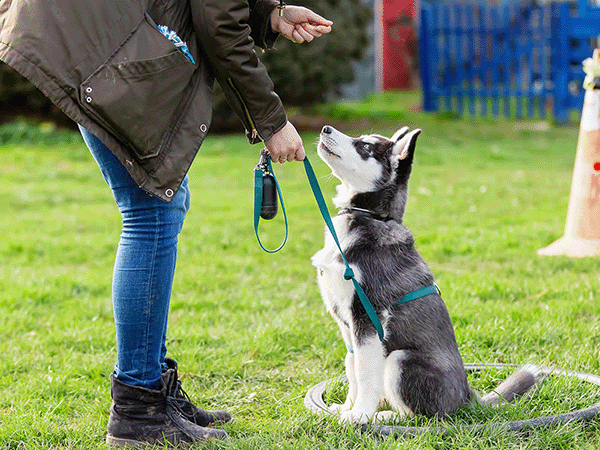
The Best Dog Trainers in the United States of 2025
This is a list of the top dog trainers in the United States, based on votes from the Sniffspot community and the general public.
The Best Dog Trainers in Seattle, WA of 2025
This is a list of the top dog trainers in Seattle, WA, based on votes from the Sniffspot community and the general public.
The Best Dog Trainers in Portland, OR of 2025
This is a list of the top dog trainers in Portland, OR, based on votes from the Sniffspot community and the general public.
The Best Dog Trainers in Los Angeles, CA of 2025
This is a list of the top dog trainers in Los Angeles, CA, based on votes from the Sniffspot community and the general public.
The Best Dog Trainers in New York, NY of 2025
This is a list of the top dog trainers in New York, NY, based on votes from the Sniffspot community and the general public.
City dog parks guides

Top 10 Indoor Dog Parks: A US Guide
Looking for a space to play with your dog no matter what the weather’s like outside? Look no further than our list of the best indoor dog parks in the United States! These climate-controlled spaces are growing in popularity as pet ownership increases throughout the country. As a bonus, many of them also offer dog training, boarding, grooming, or daycare services on the premises.

15 Best Dog Parks in the US: Public & Private
Searching for the best off-leash dog parks near you in the United States? Whether you're looking for public dog parks with open spaces or private, fully-fenced areas, this comprehensive guide has you covered. Discover top-rated parks across the country, plus essential tips on what to bring and what to expect for your next adventure.

Dog Parks Near Me: Las Vegas Edition
Looking for the perfect dog park near me in Las Vegas? You're in luck! This guide explores all the best options for your pup, from public dog parks to private dog parks near me on Sniffspot. We'll help you find the ideal spot for playtime, socializing, and fresh air. Plus, we'll cover essential etiquette and safety tips to ensure a happy visit for everyone. Get ready for some tail-wagging fun!

Top Sniffspot Locations: Find the Perfect Dog Park
Looking for the perfect dog park? Whether you need a wide-open public space or a private, fenced-in spot, this guide will help you find the best dog parks across the US. We'll cover top-rated public parks, the perks of private dog parks, and even explore Sniffspot locations – giving your pup a safe and fun place to play. Ready to find your dog's new favorite spot? Let's go!

Sniffspot: Portland's Best Private Dog Parks
Ready to discover Portland's best dog parks? Whether you're looking for a public park or the unique experience of a private Sniffspot, this guide has you covered. We'll help you find the perfect spot for your pup, with tips on what to bring, how to prepare, and even understanding dog body language. Plus, we'll explore some top Portland dog parks, including public and Sniffspot options, so you can plan your next dog-friendly adventure in the City of Roses.
Dogs breeds

German Shepherd Dog: Breed Facts, Experience and Tips from 9K+ Owners
Discover the German Shepherd Dog, a breed celebrated for its intelligence, loyalty, and versatility. Known for its impressive size and smooth, graceful movements, German Shepherds excel in various roles, including as guide, therapy, bomb detection, and police dogs, while being a devoted family companion.

Labrador Retriever: Breed Facts, Experience and Tips from 9K+ Owners
Discover the Labrador Retriever, a breed celebrated for its playful nature, affectionate temperament, and trainability. Labradors are known for their friendly demeanor and adaptability, making them perfect family companions and versatile working dogs. As one of the most popular types of retrievers, Labs are ideal companions for various lifestyles and are recognized by the American Kennel Club (AKC) as an excellent breed for families.

Golden Retriever: Breed Facts, Experience and Tips from 9K+ Owners
Discover the Golden Retriever, a popular breed celebrated for its affectionate, playful, and trainable nature. Considered a large dog, Golden Retrievers were originally bred in Scotland for hunting and retrieving game beginning in the 1860s. Today, they're recognized by the Kennel Club and the American Kennel Club (AKC) as one of the most beloved companion dog breeds.

American Staffordshire Terrier: Your Complete Guide
Think American Staffordshire Terriers are tough? Think again. While their muscular build might intimidate some, these dogs are known for their playful and loyal personalities. This guide draws on the experience of nearly 10,000 AmStaff owners to reveal the truth about this often misunderstood breed. Want to learn more about caring for an American Staffordshire Terrier? You're in the right place.

Australian Shepherd Facts: Breed Info & Care Guide
Discover the Australian Shepherd, an AKC breed celebrated for its trainable, playful, and affectionate nature. Despite its name, the Australian Shepherd is actually a native breed to the United States, originally developed to breed on farms and ranches. Considered a medium dog, Australian Shepherds were bred for herding beginning in the 1950s. As one of the high-energy breeds, Aussies are known for their boundless energy and need for regular exercise, including aerobic exercise.
Top dog names in the US
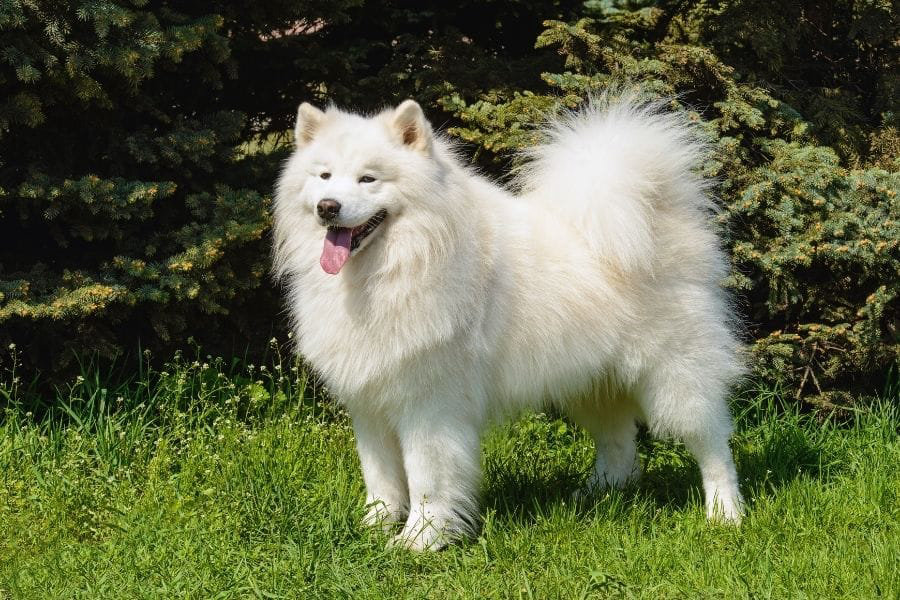
Top 1,000 Most Popular Dog Names
Looking for the perfect dog name for your new pup? We have created filterable lists of dog names from our database of hundreds of thousands of Sniffspot users. You can filter by gender, breed and state to find the most cute, unique and creative dog names.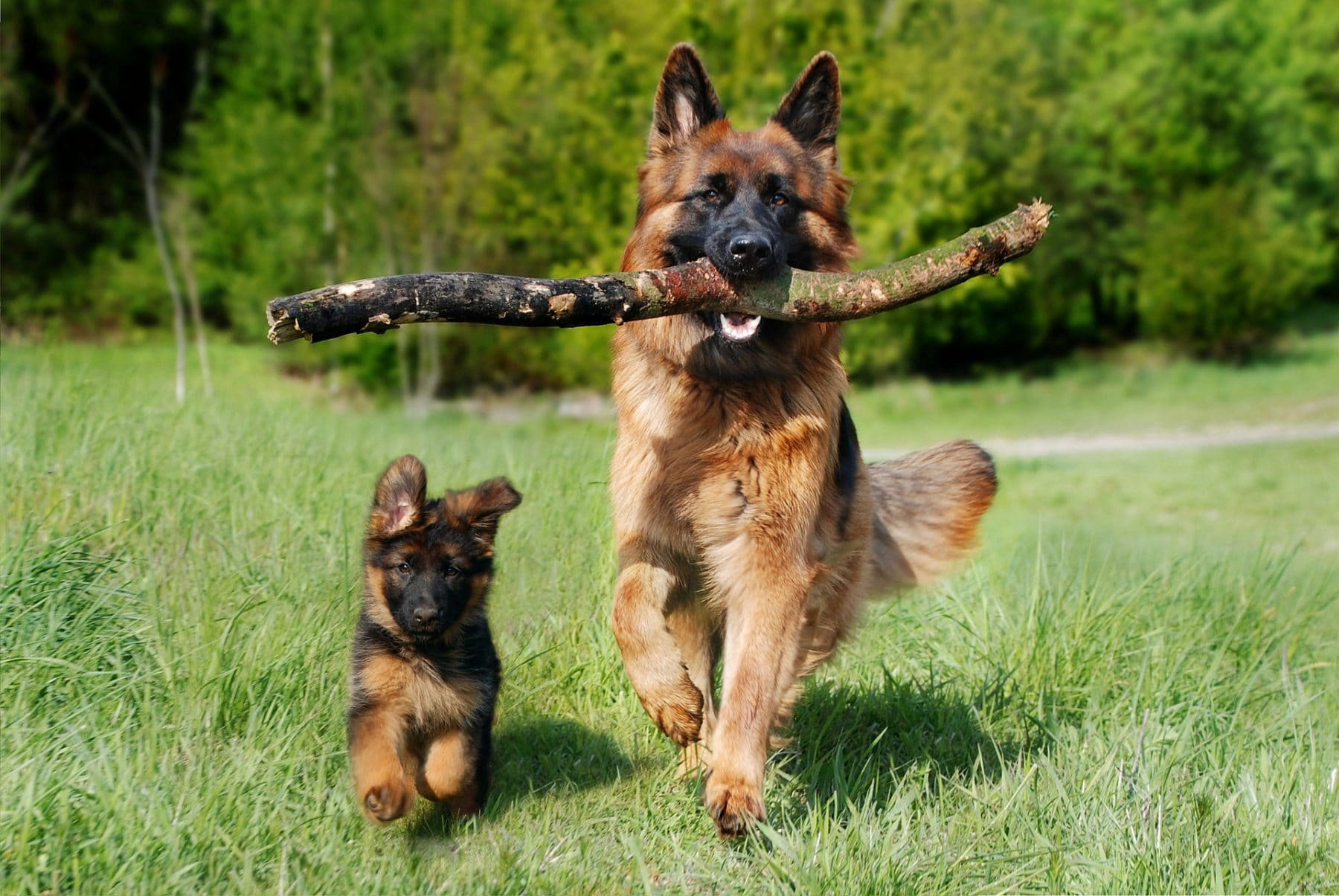
Most Popular Male Dog Names
Looking for the perfect dog name for your new male pup? We have created filterable lists of male dog names from our database of hundreds of thousands of Sniffspot users. You can filter by gender, breed and state to find the most cute, unique and creative male dog names.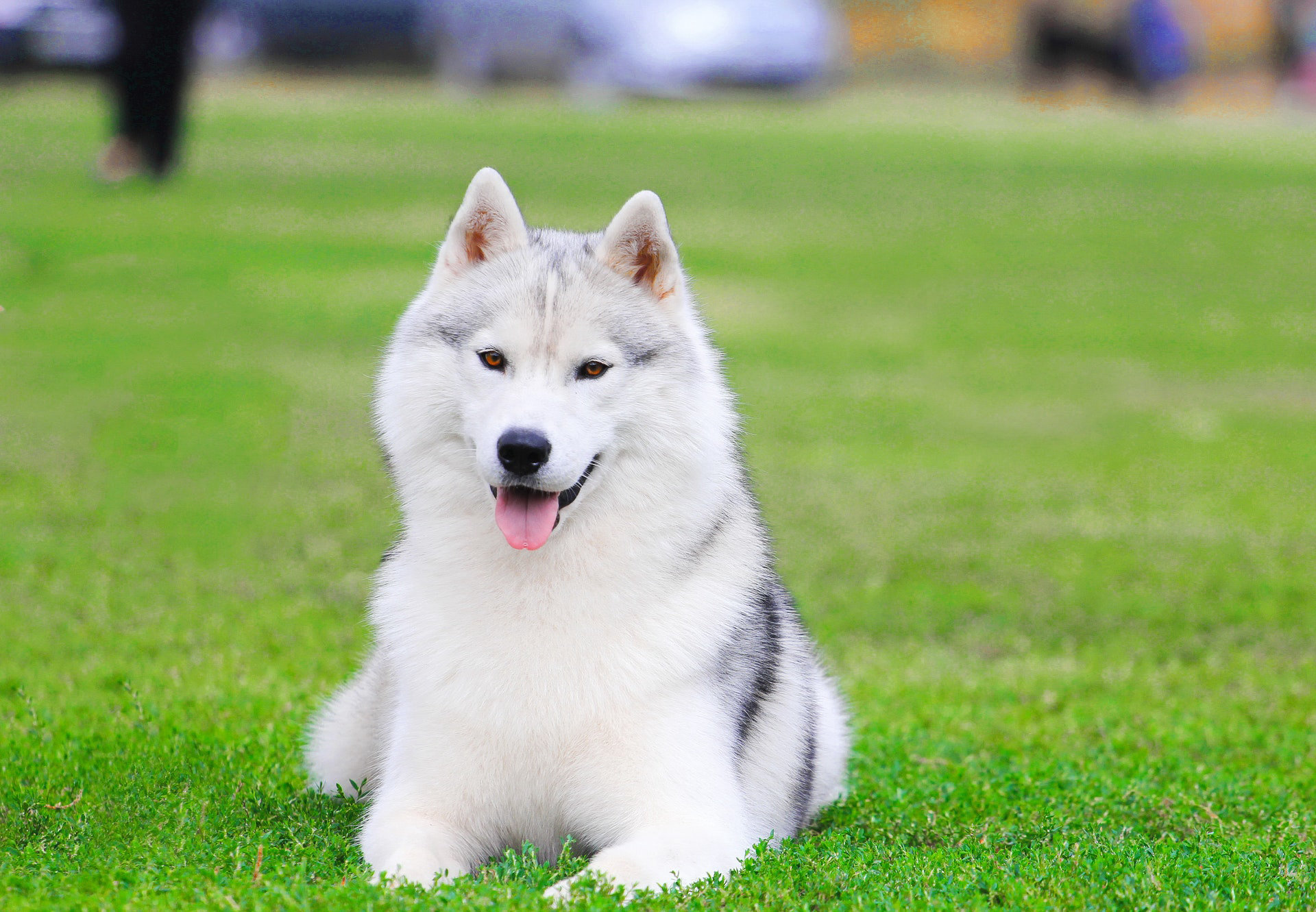
Most Popular Female Dog Names
Looking for the perfect dog name for your new female pup? We have created filterable lists of female dog names from our database of hundreds of thousands of Sniffspot users. You can filter by gender, breed and state to find the most cute, unique and creative female dog names.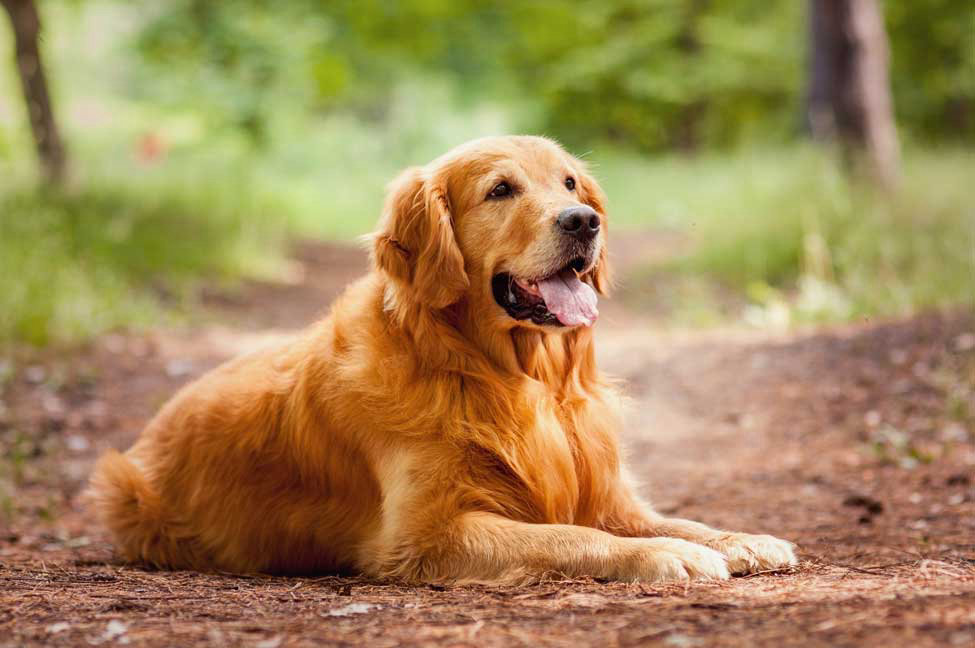
Most Popular Golden Retriever Names
Welcome to our comprehensive list of Golden Retriever dog names, curated from our vast database of Sniffspot users. Filter through hundreds of thousands of options by gender, breed, and state to discover the most adorable, original, and imaginative names for your beloved Golden Retriever.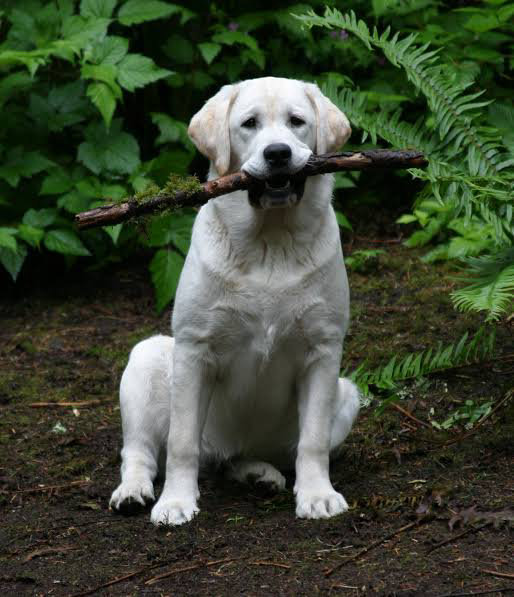
Most Popular Labrador Retriever Names
Welcome to our Labrador Retriever dog names page! Here you can browse through filterable lists of names for your beloved furry friend, ranging from cute and classic to unique and creative options. Our database of hundreds of thousands of Sniffspot users ensures you'll find the perfect name for your Labrador Retriever, whether you're seeking a name for a male or female, based on breed or state.
Top dog rescues in the US

The Best Washington Dog Rescues & Shelters in 2025
This list showcases the top dog rescues & shelters in Washington. These remarkable organizations have been recognized for their unwavering dedication to the well-being of countless dogs.
The Best Oregon Dog Rescues & Shelters in 2025
This list showcases the top dog rescues & shelters in Oregon. These remarkable organizations have been recognized for their unwavering dedication to the well-being of countless dogs.
The Best California Dog Rescues & Shelters in 2025
This list showcases the top dog rescues & shelters in California. These remarkable organizations have been recognized for their unwavering dedication to the well-being of countless dogs.
The Best Florida Dog Rescues & Shelters in 2025
This list showcases the top dog rescues & shelters in Florida. These remarkable organizations have been recognized for their unwavering dedication to the well-being of countless dogs.
The Best New York Dog Rescues & Shelters in 2025
This list showcases the top dog rescues & shelters in New York. These remarkable organizations have been recognized for their unwavering dedication to the well-being of countless dogs.





















